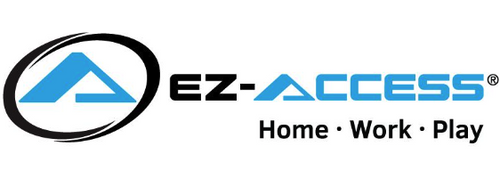An injury, chronic condition, or the natural aging process can significantly impact mobility, affecting everything from navigating stairs to getting up from a seated position. For those of us caring for loved ones with mobility challenges, finding ways to support them can feel daunting. Thankfully, there is a wealth of tools, resources, and modifications available today that can make life easier and safer for everyone involved.
Here, we’ll explore practical ways to help individuals with limited mobility, from evaluating needs and making home adjustments to providing emotional support.
Assessing Mobility Needs
The first step in supporting a loved one with mobility issues is assessing their current level of mobility. Start by asking questions: Are they struggling to walk short distances? Do they need help transitioning between seated and standing positions? This assessment can guide you toward specific tools and adjustments that will be most beneficial.
Consider the following mobility aids to improve daily functionality:
- Canes: Available in a range of styles, from single-pronged to four-pronged, canes provide essential balance support. Modern canes also come in ergonomic designs, so there’s a fit for every need.
- Walkers: From basic models to ones with wheels and seats, walkers offer varied support. For someone with reduced strength, a wheeled walker might be ideal for long-term support.
- Wheelchairs: Both manual and electric options can be life-changing for those who cannot walk independently.
- Ankle-Foot Orthotics (AFOs): For individuals with foot-drop or weakened ankle muscles, AFOs support better gait stability.
These mobility aids offer your loved one greater independence, enhancing their confidence and comfort.
Modifying the Home Environment
Simple changes to the home environment can make a tremendous difference for individuals with limited mobility. Modifications not only support physical needs but also help people feel more comfortable and independent in their own homes.
- Ramps: Installing ramps over steps or door thresholds makes it easier for those with walkers or wheelchairs. EZ-ACCESS® offers portable wheelchair ramps that can be customized for temporary or permanent use.
- Grab Bars and Handrails: Adding these in high-risk areas like bathrooms and staircases provides crucial support.
- Clear Pathways: Arrange furniture to create wide, unobstructed paths for walking or wheelchair access.
- Widen Doorways: Consider widening doorways if mobility devices, like wheelchairs, are regularly used.
- Additional Lighting: Ensure hallways and stairways are well-lit, minimizing the risk of falls, especially for those with limited sight.
By making these modifications, you can help create a safer, more accessible environment for your loved ones.
Providing Mobility Assistance
When helping someone with limited mobility, it’s crucial to use correct body mechanics to avoid injury. Support them by standing close, with feet shoulder-width apart, bending from your knees rather than your back. For more intensive mobility support, such as lifting, consider hiring a certified caregiver. This ensures that your loved one receives the best care without putting you at risk for strain or injury.
Creating an Exercise Routine
Physical activity is vital for maintaining flexibility, muscle strength, and mental health. Even gentle movements can have a significant impact. Work with a physical therapist to design an exercise program tailored to your loved one's abilities. Simple activities like seated stretches, leg lifts, and gentle walking routines can go a long way in preserving muscle tone and balance. Encouraging movement—no matter how small—will help them feel more in control and independent.
Supporting Emotional Health
Adjusting to limited mobility can be emotionally challenging. Feelings of frustration, sadness, or isolation are common. Keep communication open, encourage them to share their thoughts, and reassure them that it’s okay to feel this way. Often, the simple act of listening and validating their feelings can help alleviate stress.
To lift their spirits, consider social activities, either in-person or online. Virtual games or weekly video calls can be a great way to stay engaged with friends and family. Additionally, explore local support groups or senior centers where they can meet others facing similar challenges.
Sharing the Caregiving Responsibilities
Taking on the full responsibility of caregiving can be overwhelming. Involve other family members or friends to help ease the load. Create a schedule for visits, daily check-ins, or outings. Sharing responsibilities not only provides you with a break but also gives your loved one varied social interactions, which can positively impact their mental well-being.
Why Choose EZ-ACCESS for Mobility Solutions?
Finding reliable, affordable, and durable mobility solutions is essential. At EZ-ACCESS, we offer a wide range of mobility aids and home modification products that prioritize safety, accessibility, and ease of use. From ramps to grab bars, our products are designed to support the independence and well-being of your loved ones, allowing them to move freely and comfortably in their own homes.
For those experiencing or caring for loved ones with mobility issues, the journey is full of challenges, but with the right tools and resources, you can create a supportive environment that enhances their quality of life.
Contact us to learn more about our products and how we can help you care for those you love. Together, we can make daily life easier, safer, and more enjoyable for everyone.


